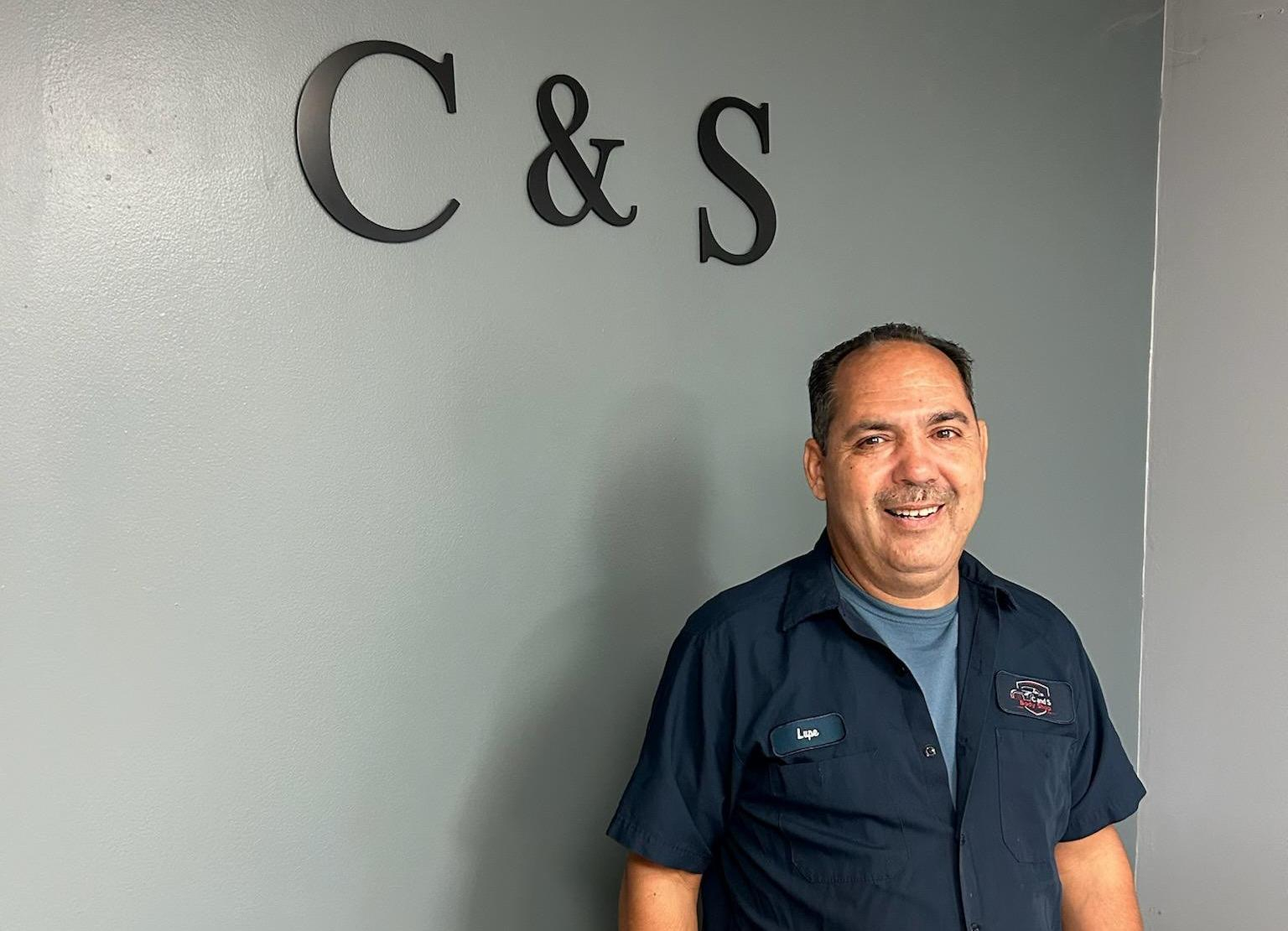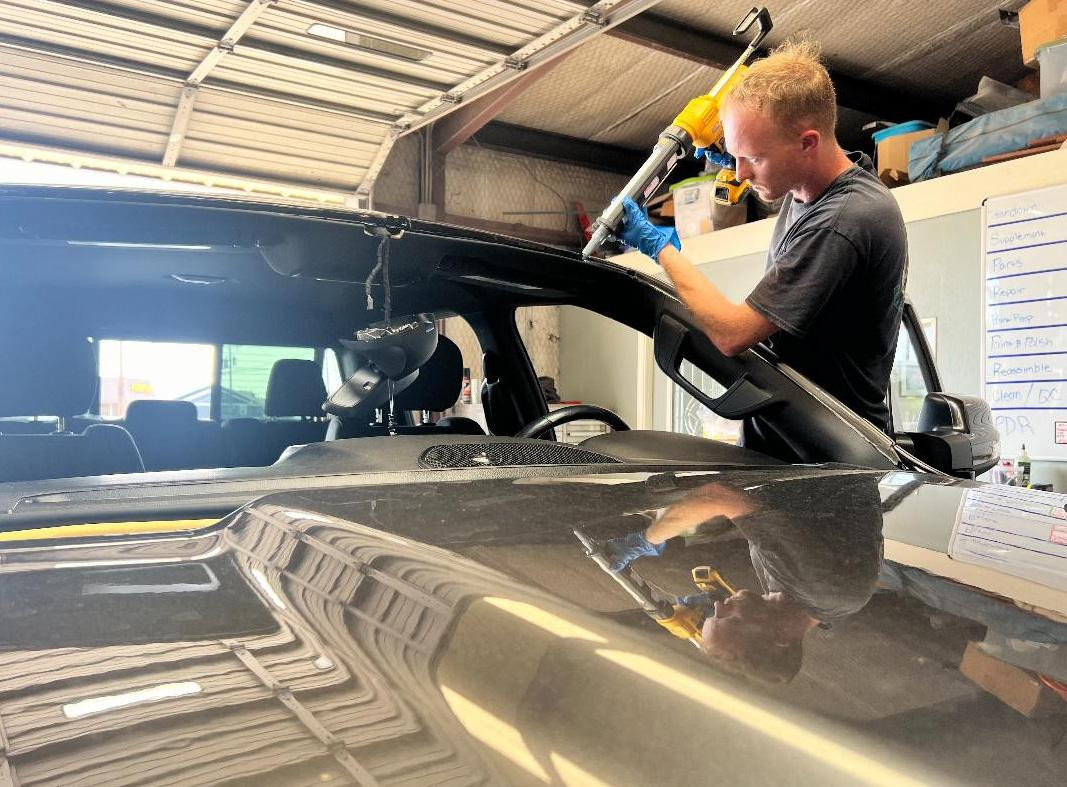Staying competitive in collision repair means adapting to industry trends that improve workflow efficiency and customer satisfaction while reducing costs. One growing trend is bringing glass operations in-house, a move that collision repair shops find beneficial for multiple reasons.
With insurance companies limiting what they’ll cover, downtime impacting profitability, and the control over quality becoming a critical issue, it’s no wonder body shops are taking matters into their own hands.
In this article, we’ll explore five key reasons body shops are opting to bring their glass operations in-house, featuring insights from industry experts like Shauna Davis, president of Kaizen Glass Solutions in Hutto, TX; Lupe Gonzalez, owner of C and S Body Shop in Buda, TX; and Carlos Manzo, owner of U First Auto Body Shop LLC in Austin, TX.
1. Reducing Cycle Time and Downtime
One of the biggest frustrations for collision shops relying on third-party vendors for glass replacement and repair is the delay in service. These delays increase the overall cycle time of a job and negatively impact customer satisfaction. Gonzalez experienced this firsthand at his shop.
 After investing in auto glass training, Lupe Gonzalez, owner of C and S Body Shop, is teaching other technicians at his shop on auto glass repair.
After investing in auto glass training, Lupe Gonzalez, owner of C and S Body Shop, is teaching other technicians at his shop on auto glass repair.
“We’d have a vehicle in the shop for 15 days, and when we needed a glass vendor to come in, we’d have to wait two to three days just for them to remove the glass, then another two or three days for them to reinstall it,” Gonzalez explained. “This meant a five- to six-day delay in completing jobs, and all that downtime was hurting our business.”
By bringing glass operations in-house, Gonzalez was able to eliminate this bottleneck and speed up repairs. “Within the first few days of doing glass replacements in-house [after our training], we were able to do five jobs right away, saving us both time and money," he said.
Manzo brought glass operations in-house to improve his shop’s cycle times and enhance quality control. “Before we made the switch, it could take up to a month or more to get a vehicle back to the customer because of delays with the glass vendor. Our turnaround time is two weeks since we handle it in-house,” Manzo said.
“That’s why we would have many delays …having to wait on multiple vendors and, on top of it, finding out it didn’t pass the scan because more things were wrong with the vehicle. This would constantly cost us in time going back and forth. Now, having everything in-house assures us we know everything in real-time,” said Manzo.
2. Saving Money by Avoiding Extra Charges
Another pain point for body shops is relying on sublets. When a third-party glass vendor breaks something during the installation, the body shop often absorbs the cost, said Gonzalez. Plus, insurance companies typically only cover the windshield replacement itself -- not the additional labor involved in removing and reinstalling it. This leaves shops footing the bill for tasks that cut into their profits.
 Carlos Manzo said that after looking at the numbers, bringing their glass operations in-house would improve cycle time, customer service, efficiency and profitability and made the switch.
Carlos Manzo said that after looking at the numbers, bringing their glass operations in-house would improve cycle time, customer service, efficiency and profitability and made the switch.
According to Gonzalez, paying for these mistakes was frustrating. “We were getting charged twice: once for removing the glass and again for installing it. It was costing us around $150 for each service,” he said.
Shops can avoid these additional costs by controlling their glass operations, maintaining better control over their expenses, and improving their bottom line.
3. Gaining Control Over Quality and Workmanship
Quality control is another crucial reason shops are moving their glass operations in-house. When outsourcing glass repairs, shops have little control over the materials and techniques used by third-party vendors. Poor workmanship can sometimes lead to additional problems, such as water leaks or windshield failures, which can tarnish a shop’s reputation and result in costly rework, not to mention liability.
Davis emphasized the importance of maintaining control over the quality of work. “When you handle glass repairs in-house, you have full control over the quality of the materials and workmanship,” Davis explained. "You can ensure that the products being used meet your standards and the job is done properly according to mandatory safety standards.”
By training their technicians to handle glass repairs, body shops can ensure the work is done to their exact specifications, avoiding costly issues down the line.
4. Increasing Profitability with Minimal Investment
The financial upside of bringing glass operations in-house is hard to ignore. While there’s an initial investment in equipment and training, the return on investment (ROI) can be realized quickly. For example, the cost of auto glass training through companies like Kaizen Glass Solutions is relatively low, starting at $1,895 for basic auto glass training and $3,500 for both auto glass and ADAS calibration training. In addition, specialized toolkits for glass repairs can cost around $2,195.
Although there are initial costs, the long-term financial benefits are substantial. According to Davis, the average shop can recover its investment after completing eight windshield replacements. To illustrate how quickly shops can begin to profit, let’s say you make an average of $300 per job. After factoring in reduced cycle times, lower labor costs and eliminating sublet fees by keeping the work in-house, the savings add up fast.
5. Enhancing Customer Satisfaction and Loyalty
Bringing glass services in-house benefits the shop financially and improves the customer experience. Today’s consumers value convenience, and offering a one-stop solution for collision repair and glass replacement fosters loyalty. Customers who don’t have to visit multiple locations or wait for third-party vendors to complete their repairs are likelier to return and recommend the shop to others.
For many collision repair shops, bringing glass operations in-house is a no-brainer. Not only does it reduce cycle times, avoid unnecessary costs, and increase profitability, it also ensures better quality control and enhances the overall customer experience.
As the industry continues to evolve, more shops see the value of offering in-house glass services and invest in the tools and training necessary to make it happen. Whether you’re a small shop or a large operation, taking this step could be a game changer for your business.














Leona Scott